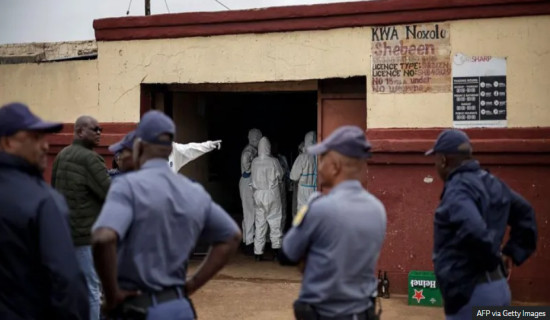- Thursday, 25 December 2025
We Overthink Things
Matthew Clemente,David Goodman, Nearly a third of U.S. adults have experienced at least one form of anxiety disorder at some point in their lives. Anxiety in the U.S is on the rise with drastic upticks being recorded even in the years leading up to the pandemic. And, yet, while psychological measurements and diagnostic manuals can help us to identify and treat those suffering from anxiety, they fall well short of explaining it. This is because anxiety is incredibly commonplace. We tend not to recognise, let alone understand, the things we experience most. The cause of one’s anxiety is often elusive. Anxiety has a knack for striking when things are going well. In the midst of struggle and chaos, it is noticeably absent. But when the calamity subsides and the tension is resolved, only then does it rear its menacing head.
This perplexing attribute garnered the attention of the 19th-century existential philosopher Søren Kierkegaard. For Kierkegaard, anxiety is intimately linked with self-reflection—our awareness that we exist as individuals and our ability to critically examine ourselves. Human beings, he says, possess a capacity that appears to be absent in other living creatures. We are self-conscious. Our psyches are not simply directed outward at the world around us. We can pause and reflect upon our behaviour. We can evaluate ourselves. This faculty of self-examination has rightly been lauded throughout the history of human thought. Yet, for Kierkegaard, the benefits of self-reflection do not come without their drawbacks. To be self-aware, he says, is to be responsible, to recognise oneself as being implicated in the lives—and, thus, the suffering—of others. When we reflect upon ourselves, we often notice the ways we have failed to live up to that responsibility.
Such responsibility, Kierkegaard says, comes from the fact that, as self-conscious beings, we recognise the freedom we have to choose between various possibilities. “A tree among trees, a cat among animals,” to use Camus’ famous formulation, never reflects upon the fact that it could have acted otherwise. It does not look back and regret its choices. What is more, such beings do not anticipate an unrealised future and see the myriad possibilities that lay ahead of them. Human beings, on the other hand, do. For us, anxiety is about what we have done (or failed to do) and what we might do (or fail to do). It is an anxiety about the fact that, as free beings, we live with an infinite number of possibilities before us and an infinite number of unrealised possibilities already behind us. While our lives are made up of the moments we actually experience, our psyches are racked by possibilities that have never or will never occur.
This way of always “being ahead of” ourselves, as the German phenomenologist Martin Heidegger calls it, leads to another anxiety-inducing realisation: We are going to die. Heidegger, who was profoundly influenced by Kierkegaard, attributes our feelings of perpetual angst to the fact that we recognise, at least implicitly, that of the various possibilities that stand before us, only one is certain to become an actuality. Human beings live, he says, as “beings-toward-death.” What he means by this is that our lives are shaped by our awareness of (and anxiety over) our ultimate fate. And the more clearly we perceive that fate, the more anxious we become. Herein lies the trouble with self-reflection. The reason that anxiety does not arise during times of immense struggle is because, when dealing with difficulties, one is consumed with the problem at hand. Turmoil robs one of the leisure needed to take a step back and think about life. It forces one to exist unconsciously—that is, unreflectively—and because of one's inattention, to embody a kind of ignorance that for Kierkegaard approximates innocence.
Such innocence, however, is not the solution to anxiety. For not only is it the innocence of one who—like a deer blinking at headlights—doesn't recognise the peril of his situation, but it is also an innocence that cannot be maintained. Sooner or later, one will be forced to confront the anxiety inherent in the human condition. Therefore, it is imperative that one not run from it. According to Kierkegaard, the way beyond anxiety is paradoxically through anxiety. Self-examination may give rise to angst, but so, too, does it offer a pathway forward. It enables us to reflect upon the choices we’ve made and envision the possibility of change. So long as we remain unaware of the fact that we exist as free beings, such a possibility is foreclosed to us. But, for Kierkegaard, faith means seeing the impossible become possible, seeing one’s anxiety transformed into the means by which one can rest in oneself and perhaps even feel moments of acceptance and authentic joy.
-- Psychology Today
















